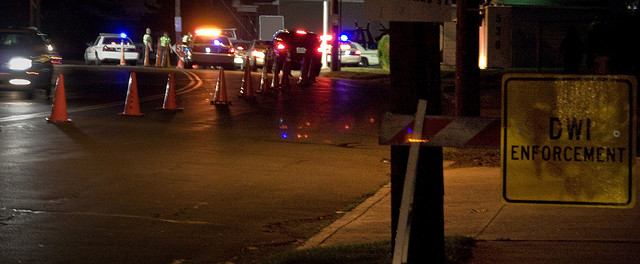
How Can You Find Out Where There Are DUI Checkpoints?
In Ohio last year, almost one–third of the traffic deaths involved drunk drivers. In addition, there were more than 12,000 alcohol-related crashes. Those are a few reasons that the State of Ohio aggressively pursues enforcement against drunk drivers. One of the ways in which Ohio tries to prevent impaired driving is to employ DUI or sobriety checkpoints.
Generally speaking, these checkpoints are likely to be more widespread at night and on weekends, and during specific holidays such as Christmas, New Year’s Eve, St. Patrick’s Day, prom, graduation, and spring break, for example. Checkpoints are also set up in places that typically see a high rate of impaired driving arrests, or alcohol-related crashes.
The checkpoint is meant to deter people from drinking and driving. These checkpoints have proven effective in decreasing its deterrent effect on drinking drivers or potential drinking drivers. Although law enforcement doesn’t anticipate a large number of OVI arrests, there is a greater perceived risk of arrests, creating the deterrent.
According to the Ohio State Highway Patrol:
About a week before the checkpoint is conducted, public notice is given that the checkpoint will be established. At this stage of the public advisory process, it is only necessary to provide a general date, time, and location for the event. Although general, it has begun to focus on the problem area. A final advisory is issued by a checkpoint administrator a few hours before the site is established and the screening for alcohol or drug-impaired drivers begins. This advisory gives the exact location and tells when the checkpoint operation will begin and end.
There are many resources on the web where you can find information about checkpoints, here are a few examples: Columbus Checkpoints on Facebook; DUIblock.com
What happens at the Sobriety Checkpoint?
The sobriety checkpoint screening area is a secured area, removed from the flow of traffic for the safety of the driver and the officer. During the screening process, law enforcement may give suspected drunk drivers field sobriety tests such as the walk and turn test, a one-legged stand test, and one of the most reliable indicators of impairment: gaze nystagmus examinations. Some officers may also use portable breathalyzers.
Columbus, Ohio DUI Checkpoints
If you’ve been arrested as the result of a DUI Checkpoint, don’t allow the deck to continue to be stacked against you. You need the representation of a skilled attorney who can help you navigate the treacherous landscape. The Maher Law Firm can help make sure that your rights are protected. Founding attorney, Colin Maher is a National Highway Traffic Safety Administration (NHTSA) certified practitioner for field sobriety testing, which is the same training police officers take. This training helps him evaluate and challenge the evidence collection involved in the field sobriety test process. Call The Maher Law Firm today for a free consultation at 614-205-2208 or contact us online.
RECENT POSTS
-
What Happens If You Hurt Someone in a DUI?
27 May 2025
-
What is Improperly Handling Firearms in a Motor Vehicle in Ohio?
27 Mar 2025
-
What is the Difference Between OVI and DUI in Ohio?
05 Mar 2025
-
What Happens When You File a Police Report on Someone For Harassment
11 Dec 2024
-
How to Move for Dismissal for OVI in Ohio
28 Oct 2024
-
Ohio Fraud Laws: Fraud Charges and Their Penalties in Ohio
12 Sep 2024
BLOG CATEGORIES
-
Current Events
1 Posts
-
Expungements
2 Posts
-
News
18 Posts
-
Criminal Defense
45 Posts
-
Traffic
126 Posts
-
Weapons
3 Posts
-
Drugs
22 Posts
-
DUI
196 Posts


